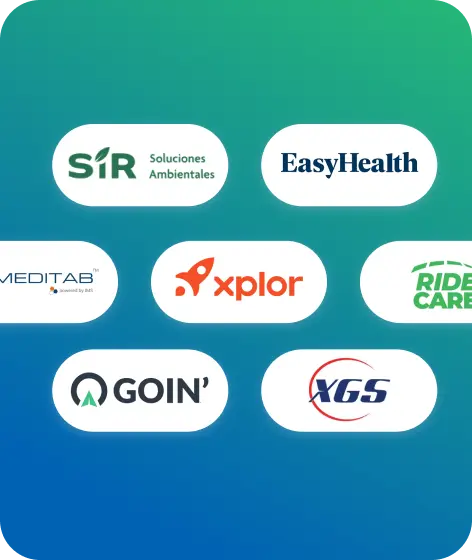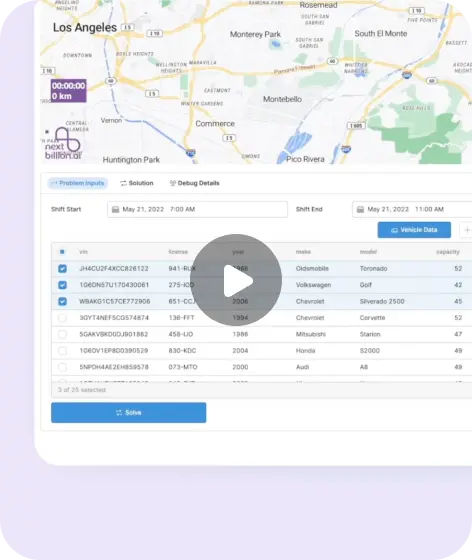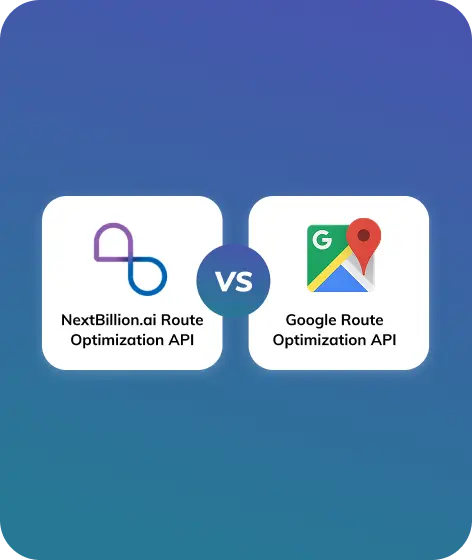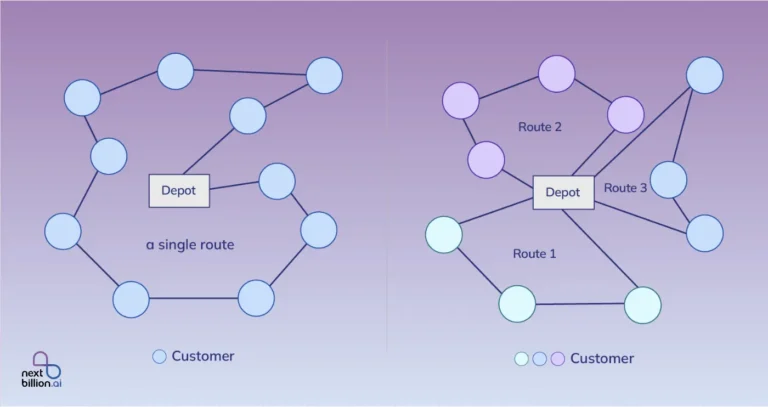
Table of Contents
Do you know the motor vehicle towing industry in the U.S. is expected to touch USD 7,708.1 million in 2024? Isn’t it impressive? The numbers in itself explain why many people want to enter the towing industry. However, building a successful towing company requires more than just buying a tow truck. From understanding your target market to planning finances, this guide on how to start a tow truck business in 2024 will give you a detailed map to help you start your towing business.

How to Start a Tow Truck Business in 8 Steps
The tow truck industry is pivotal for both companies and individuals. Whether it’s helping drivers in need, offering emergency roadside services, or removing illegally parked cars, tow trucks are always in demand. The success of your towing business depends on many factors, such as identifying the target market, navigating through regulations, investments in tools and technology, and planning other contingency elements. Here are the eight steps that can help you kick-start your tow truck business.
Know Your Target Market
A strong foundation is vital for a successful towing business because it ensures that the business is efficient, resilient, and focused. It also helps a company attract and retain investors, customers, and employees.
To start your tow truck business, you must identify the segment you intend to serve. Do you plan to target commercial fleets, local government contracts, or individual car owners? Each segment has distinct expectations and requirements.
Commercial Fleets
Businesses like auto dealerships, delivery services, and rental car companies are heavily dependent on towing services. Plan to provide specialized services like scheduled towing to stand apart from your peers.
Government Contracts
Plan to secure contracts with governments for services such as removing illegal or abandoned vehicles or impound towing. Such contracts can become a steady source of income for your business. However, government contracts don’t come easy. The companies have to bid for the contracts and abide by specific regulations.
Car Owners
The individual car owner market is all about quick and affordable services. Tasks for this market include vehicle recovery, emergency towing, and roadside assistance.
Do comprehensive research, plan surveys, analyze existing players and their products, and then come up with your target market. Speaking directly to customers is another way to identify what the current market demand is like! You can read dozens of articles on how to start a tow truck business in 2024, but nothing will work unless you apply the principles in real life!
Understand Local Regulations and Requirements

The motor vehicle towing industry follows strict regulations to ensure fairness and safety. Here are some of the major regulations that may require your attention:
- Licensing: Tow truck operators need to complete state mandate certification and get related licenses. This mainly includes a commercial driver’s license with additional towing endorsements.
- Zoning Laws: Find out detailed information on local zoning laws so that there is no failure in business location compliance with regulations. This factor is vital if you intend to store vehicles on your property.
- Insurance: Towing companies need more than one type of insurance, which includes garage keeper’s insurance, on-hook towing insurance, and liability insurance. The exact insurance requirements may differ by state and the towing services that you offer.
- Environmental Regulations: The towing company that disposes of or stores vehicles must adhere to environmental guidelines concerning pollution control and waste management.
Failure to adhere to these regulations can result in legal problems, fines, and penalties, or even the suspension of your license. Always consult with a legal expert who specializes in small business or transportation law to ensure full compliance.
Create a Business Plan

Business plans serve as road maps; you can travel without a road map but not without getting lost. A structured business plan helps you get secured funds and works as a growth guide. A business plan should focus on the following points:
- Executive Summary: It’s the most important part of a project plan. It provides an overview of your business, discusses the business objectives, and reads your mission statement. Think of the key factors your management team must know before they can look at the project details.
- Market analysis: Gather relevant information about factors and elements that affect the towing industry, such as the target market, growth potential, and market leaders. Then, do a detailed analysis of the demand for towing services in your area.
- Customer segmentation: Segment your customers into different categories depending on specific criteria to plan your marketing.
- Competitive analysis: Evaluate the strengths and weaknesses of the towing leaders in your area. It will help you gain a competitive advantage when offering your services.
- Logistics and operational plan: An outline of how your tow company will execute the most efficient towing services, such as day-to-day operations, equipment needs, and staffing.
- Financial Plan: A business plan should include startup costs, revenue estimates, and break-even analysis. It should also define a pricing strategy and factor in both fixed and variable costs.
A comprehensive business plan helps you stay focused on your business goals and serves as an important document when securing funds.
Secure Startup Funding
Securing funding is one of the biggest challenges to launching a tow truck business. Starting a tow truck company requires substantial capital investment, especially in purchasing tow trucks. Before asking for funding, you must understand the different types of funding available and how to utilize them.
- Personal savings: Nothing matches the benefits you receive when you start your towing business from your funds. If not, you can get seed funding through family and friends.
- Small business loans: Several financial institutions offer tailored loans for startups. Consider getting a Small Business Administration loan, which often provides flexible terms to new companies.
- Equipment Financing: This option allows you to purchase tow trucks and other required equipment, spreading the initial cost over time. Any company looking to acquire multiple vehicles can consider equipment financing.
- Investors: This is another good alternative to debt. You can offer equity in your business in exchange for the required capital. This option is available only to companies with a solid business plan and transparent growth strategy to attract prospective investors.
No matter which funding option you choose, ensure that your plan is good with clear estimates that showcase your ability to generate lucrative returns and repay any loans.
Register Your Business

Registering your business makes your tow truck business legal and recognized by local authorities.
- Define a business structure: Choose whether you want to operate as a Limited Liability Company (LLC), partnership, sole proprietorship, or corporation. Each business structure comes with distinct implications for taxes, liability, and legal requirements.
- Register with the State: Complete the paperwork with the local business registration office. Register your company name and get an Employer Identification Number from the IRS.
- Get necessary permits and licenses: Depending on your business region, you may require additional permits to function legally. This could include a business license, towing permit, and other industry-specific licenses.
- Open a dedicated business bank account: Never mix your business and personal finances. A business bank account simplifies tax filing, builds business credit, and is essential for tracking expenses.
Don’t Forget to Get the Licenses, Permits and Insurance
Ensure that all permits, licenses, and insurance are in place before you start your tow operations.
- Permits to function in specific regions or to store towed vehicles. This could include storage facility permits, parking permits, and environmental permits.
- Commercial Driver License for larger vehicles or when moving heavy loads between places.
- Some states or municipalities mandate a specific towing license, which may involve additional testing or a background check.
- Liability insurance covers injuries or damages caused during towing operations. Other additional insurance that you may need includes on-hook towing insurance and garage keeper’s insurance for stored vehicles. You will have to get workers’ compensation insurance if you have employees.
Purchase Standard Towing Equipment and Tools
Regardless of your target segment, your business will need standard towing equipment and tools, such as hooks, chains, and jump starters.
Here’s a list of all the other equipment and tools you’ll need:
Tow Trucks: Depending on the services, you can choose from different types:
- Flatbed Tow Trucks are meant to transport vehicles that cannot be driven.
- Hook and Chain Tow Trucks are used for scrapped or junk vehicles.
- Wheel-lift tow Trucks are a better option than hook-and-chain tow trucks as they are less damaging and suitable for most vehicles.
- Integrated Tow Trucks for heavy-duty towing of large vehicles like big rigs and buses.
Let your budget decide if you want to buy new or used vehicles. Though new trucks have warranties, they are expensive. Used trucks may cost less initially but then may require more maintenance.
Tow truck employees must have communication devices to stay in contact with customers and dispatch.
Launch a Marketing Strategy
Once your towing business is all set to operate, attracting clients is the next step. Marketing strategy helps you reach your target customers and build brand awareness. Here’s how you can get started:
Your unique selling proposition determines what will make your company stand out in a competitive environment. It could be your specialized towing services, remarkable customer service, rapid response time, or 24/7 availability. Identify your USP and highlight it in all your marketing initiatives.
Leverage online platforms to establish your presence on the web. Create a professional website that highlights your company’s mission statement with other essential information, such as services offered and pricing details. Optimize your website for search engines to ensure a good search listing for your potential customers. Engage with clients on social media platforms like Instagram and Facebook to enhance your operations visibility.
Build partnerships with insurance companies, car dealerships, and auto repair shops as they can refer your services to their customers. Plan a referral program that rewards these businesses or other customers for referring new clients to your towing business.
Remember to use traditional advertising—old school never disappoints! Your marketing strategy should be dynamic but also adaptable.
Why Towing Businesses Fail to Make a Mark
While the booming towing industry offers excellent growing opportunities, many businesses fail due to common pitfalls.
Starting a business without proper planning results in financial issues, operational inefficiencies, and a lack of direction.
Towing businesses that fail to comply with licensing requirements and local regulations witness fines, fees, and sometimes the closure of their business.
Poor financial planning is one of the leading causes of towing business failure. A towing business can’t operate without trucks and equipment. The startup cost is high, and if it’s not handled well, along with other operational costs, it could result in a financial disaster.
Starting a business is one part, but establishing it requires a sound marketing strategy. With a poor marketing strategy, businesses will fail to attract retail customers.
How Route Optimization Can Maximize Profitability for a Towing Company
The tow truck business is all about volumes, reduced fuel costs, and the best response times. You can achieve all these by route optimization. In simple terms, route optimization is all about finding the most efficient routes for your towing vehicles, considering factors such as pickup location, travel time, driver schedule, and towing capacity.
Route optimization means better routes, which reduce unnecessary driving. This, in turn, lowers operating costs and fuel consumption. As we know, the lower the fuel consumption, the better the profit margins.
Route optimization is also essential for drivers as they can reach customers faster with the most efficient routes. This enhances customer satisfaction, and at the same time, the drivers can complete more jobs in a day. Increased productivity directly results in higher profitability, and customer satisfaction results in repeat business.
How NextBillion.ai Can Help Your Towing Business Grow
NextBillion.ai offers advanced route optimization for your towing business that helps you streamline your operations, reduce costs, and enhance customer satisfaction. What are the capabilities that make NextBillion.ai route optimization solutions for your towing business unique?
Optimize the routes

Using NextBillion.ai’s platform, you can tailor route optimization to the specific requirements of your towing business. NextBillion’s platform integrates real-time traffic data, ensuring your tow truck drivers avoid congested areas and take the fastest routes available. It enables you to cut hours of manual route editing and batch-wise ETA calculations. This feature stands out in urban areas where traffic can significantly impact response times.
Scale with NextBillion.ai
As your business grows, NextBillion.ai can scale with you. Its platform is designed to handle increased demand, expanded service areas, and additional vehicles.
NextBillion.ai provides actionable insights using data analytics, which allows you to make informed decisions about your customer service, fleet management, and overall business strategy. This data-driven approach can lead to improved outcomes and increased profitability.
Integrate with existing systems
NextBillion.ai can seamlessly integrate with your existing dispatch and fleet management systems, allowing for a smooth transition and minimal disruption to your operations. This compatibility ensures that you can quickly start benefiting from route optimization without needing to overhaul your current setup.
Frequently Asked Questions
The funds required to start a tow truck company can vary depending on many factors, such as the type of tow trucks you want to purchase, your area of operation, and whether you’re setting the business up from scratch or buying an existing company. Average initial startup costs can range anywhere between $150,000 and $300,000.
The profitability of a tow truck business will depend on how well you manage your operational costs. It’s when the business plan proves helpful. Also, using advanced technologies like route optimization helps you reduce expenses and improve customer satisfaction.
A tow truck can be a good investment when you’re starting your business in a market with a strong demand for towing services. The return on investment depends on factors like the truck’s initial cost, maintenance costs, operating expenses, and revenue. It can be a worthwhile investment if you can achieve a high utilization rate for your tow truck.
A towing business can deliver hefty profit margins ranging between 20% and 30% or more, depending on how it is run. Key factors that add to profitability include the efficiency of your route planning and pricing, your ability to manage operating expenses, and the volume of calls you receive.
On average, local towing services can cost between $75 and $125 for the first few miles, with additional mileage charges ranging from $2 to $4 per mile. Factors that can impact the total towing cost include the service time, the difficulty of the tow, and whether additional services are required. It is vital to set competitive pricing while ensuring that it covers your costs and delivers a reasonable profit margin.
About Author
Rishabh Singh
Rishabh Singh is a Freelance Technical Writer at NextBillion.ai. He specializes in Programming, Data analytics and technical consulting, turning complex tech into clear and engaging content.











